
Adrian Cox’s Borderlands paintings, to be unveiled in an upcoming show at Corey Helford Gallery in Los Angeles, are set in an Edenic vision of managed woodlands and weeded meadows, where fine and formal trees cast gentle shadows onto soft, green-carpeted forest floors. But this pleasant, lovely land of rolling rivers hosts a pink population of strange organisms—humanoid and faceless figures that have ascended from fungal forms, bright hominids evolved from the liminal slime on the mold-slipped edges of watery and fecund places. These are the border creatures, the spiritual and physical extensions of the idyllic landscape. They are the faceless caretakers of the Borderlands. “These strange but peaceful creatures are artists, gardeners, poets, scientists and mystics,” Cox says, “When they dream, the landscape dreams with them.” They coexist with the land and live in peaceful anarchy.
But Cox’s creatures of the Borderlands come in two species. The home of the border creatures has been invaded by blue, glowing specters, evil trespassers who have come to cause harm to the benign land of the fungal creatures.
The specters are destructive and exploitative. They are an entirely anonymous collective, led by a king who may be any one of them, only differentiated from the other specters by zipping on a coverall skin suit which gives the creature authority. In The Spectral King Enthroned the suit has symbols etched into it like tattoos. A simple crown is outlined on his forehead, a rude skull and a dagger line his shoulders, and an all-seeing eye on each knee, both accompanied by a downward pointing arrow. His authority is primitive and prescriptive. His staff burns and he rules with fire.
Esta historia es de la edición June 2023 de American Art Collector.
Comience su prueba gratuita de Magzter GOLD de 7 días para acceder a miles de historias premium seleccionadas y a más de 9,000 revistas y periódicos.
Ya eres suscriptor ? Conectar
Esta historia es de la edición June 2023 de American Art Collector.
Comience su prueba gratuita de Magzter GOLD de 7 días para acceder a miles de historias premium seleccionadas y a más de 9,000 revistas y periódicos.
Ya eres suscriptor? Conectar

FULL EXPOSURE
Photographer Conor Martin documents the present using photographic methods of the past.
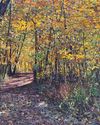
Autumnal Light
The landscapes and nature scenes of painter Jennifer Sowders are irresistibly tactile, filled with varying textures that seem to leap off the canvas.
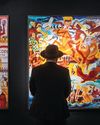
Art for All
Members of Art Dealers Association of America come together for a philanthropic affair.
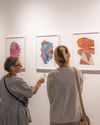
Modern Marketplace
Redwood Art Group brings together the San Diego region for another class-act celebration of contemporary artwork.
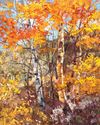
An Enchanting Evening
Scottsdale Artists’ School knows how to throw an art party.

Timeless Tales
Soft, warm undertones underscore the mood of enchantment that runs through Nom Kinnear King’s paintings.

Next Exit New York
Coming off his series that focused on San Francisco and Los Angeles freeway signs, artist Eric Nash’s sights are now set on New York. Now on view at George Billis Gallery's Manhattan location are seven of Nash's new oil paintings and two drawings that explore the signage of New York City freeways. Although Nash's work is tightly rendered, he doesn’t consider himself a photorealist, but rather someone who utilizes those techniques to express ideas.

Monster Mash
Vampires, witches, ghouls and all things that go bump in the night are the theme of the exhibition Monster Mash, now at Abend Gallery.

Inside/Outside
Those familiar with Geoffrey Johnson's populated by inky figures and trailing shadows that bleed into the wet streets, and architectural elements obscured to varying degrees by the misty atmosphere.
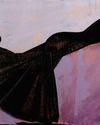
Bold Figures; Bold Color
For Brooklyn based painter J Louis, it’s all about balance, which can mean many different things in a composition, but for Louis, it’s about balancing his female figures among a unique landscape of color.